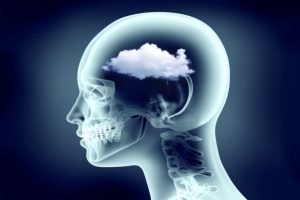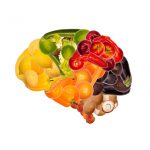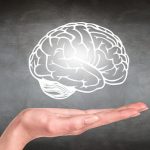 The brain is arguably the most important organ in the human body, and it is only natural that we take good care of it, especially as we start getting older. We at Bel Marra appreciate all the brain does for us, as it is the main interpreter of the world around us. Here are some of our best articles on how you can keep your brain healthy for years to come.
The brain is arguably the most important organ in the human body, and it is only natural that we take good care of it, especially as we start getting older. We at Bel Marra appreciate all the brain does for us, as it is the main interpreter of the world around us. Here are some of our best articles on how you can keep your brain healthy for years to come.
Brain fog: Causes, symptoms, and prevention
Brain fog isn’t a medically recognized condition but it is characterized by the feeling of confusion, forgetfulness, lack of focus, and poor mental clarity. Patients describe brain fog as the inability to think clearly.
Advertisement
Brain fog can be associated with lifestyle factors or can develop as a side effect of a medical condition or medication. Determining the underlying cause of your brain fog is the first step towards treating it and thinking clearly once again. Brain fog has been commonly associated with fibromyalgia and menopause, for example. Continue reading…
 Five food groups to feed your brain
Five food groups to feed your brain
A new restaurant has opened in New York City that is taking the idea of “brain food” to the next level. The eatery consulted and went into business with Dr. Alon Seifan—a neurologist specializing in aging and dementia—and serves up meals that consist of only five food groups: fruits, vegetables, legumes, whole grains, and healthy fats. According to Dr. Seifan, these food groups are the basis of many diets found in Blue Zones—regions where people tend to live longer and healthier lives and are less likely to lose brain volume as they age. One notable Blue Zone is the Mediterranean, which may have sparked the recent trend of following a Mediterranean diet for a multitude of potential health benefits. The Mediterranean diet is mostly plant-based and consists of plenty of vegetables, fruits, beans, olive oils, and oily fish—foods that fall into the food groups outlined by Dr. Seifan. This diet has also been found to prevent cerebral atrophy, or brain volume loss, in older adults who followed it strictly. Continue reading…
 Healthy eating improves brain function
Healthy eating improves brain function
A recent study found that older adults who consumed healthy foods had so-called crystallized intelligence, the ability to use their skills and knowledge acquired over a lifetime. The researchers discovered that a pigment commonly found in dark leafy greens as well as in egg yolks and cruciferous vegetables offer neuroprotective properties to the brain.
Earlier research revealed that one’s pigment status was linked to cognitive performance across their lifespan. Studies have shown that the pigment accumulates in the brain’s gray matter—particularly, in the regions associated with the preservation of cognitive function in healthy seniors.
The new study enrolled 122 healthy participants aged 65 to 75 who were asked to solve problems and answer standardized questions to measure crystallized intelligence. The participants also had their blood drawn to measure levels of this pigment and underwent MRI scans to assess brain volume. Continue reading…
 Five habits that can harm your brain
Five habits that can harm your brain
Dementia and Alzheimer’s disease are growing concerns as the U.S. population ages, bringing the importance of keeping your brain healthy to the forefront of many medical journals. While we all know to wear a helmet and protect your head when engaging in risky activities, there are more potential dangers to your brain’s health than you may realize. Below are five common habits that can damage your brain that many partake in every day.
Five habits that harm your brain
Poor sleep habits. Sleep is important for your overall health as it allows your body and mind to recover after a long day. However, many of us do not get the recommended six to eight hours of sleep a night and this chronic sleep deprivation may be causing damage to our brains. Studies in mice have found that chronic sleep loss may cause permanent damage and loss of brain cells that cannot be reversed by getting more sleep later on. Bottom line—it is impossible to truly catch up on sleep, and while a cat nap may help restore your energy, it cannot undo the brain damage that may have occurred. Continue reading…
 Keeping busy boosts brain health
Keeping busy boosts brain health
Advertisement
Although many of us complain about our busy schedules, keeping our agendas booked up could be offering us many brain health benefits. A study uncovered that older adults with busier schedules perform better on memory tests, information processing, and reasoning.
The researchers did mention that they don’t necessarily believe being busy promotes mental clarity, as those who are busy may just be sharper and seek out greater mental stimulation. On the other hand, previous findings have suggested that seeking out new skills can help improve cognition.
The Alzheimer’s Association recommends that seniors partake in physical, mental, and social activities in order to reduce their risk of Alzheimer’s disease. Continue reading…
